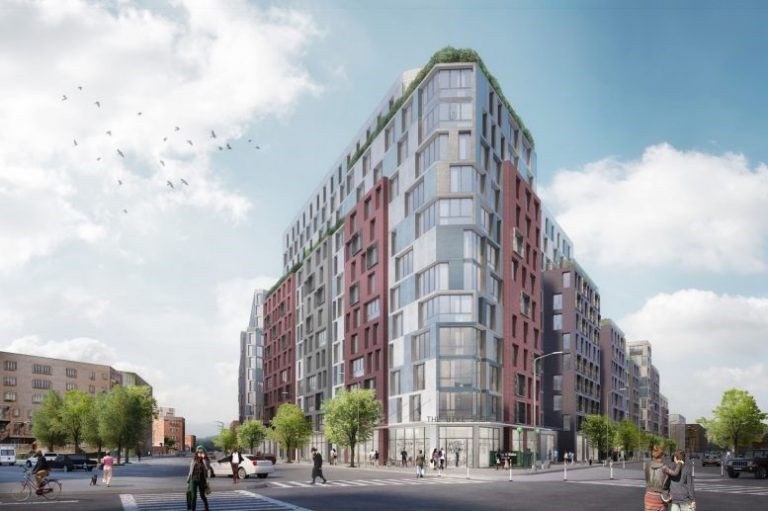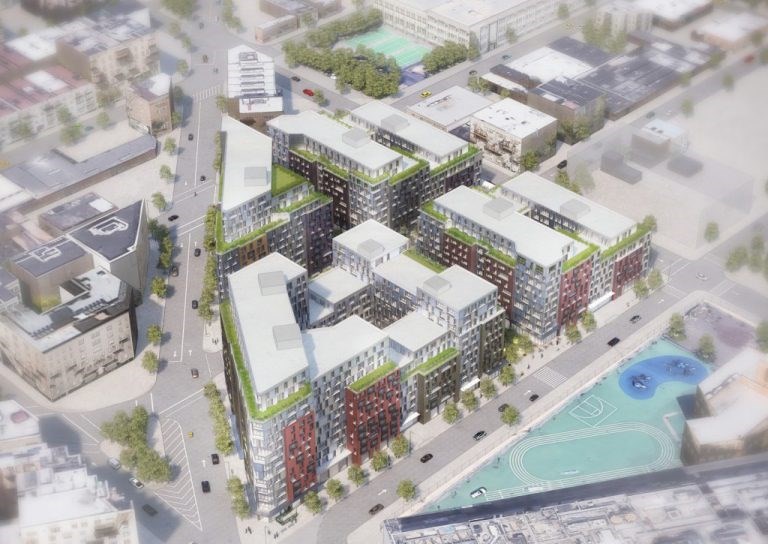A report issued by a local grassroots organization describes how affordable housing plans marginalize Black and Latino families in Brooklyn

On Friday, Churches United for Fair Housing (CUHFF), a grassroots organization that works towards preserving and creating affordable, vibrant communities, released a report titled "Red Line - A Study of the Ongoing Segregation at the Broadway Triangle" which describes new efforts to marginalize Black and Latino residents in Brooklyn through the creation of affordable housing.
The report is CUHFF's critical response to the newest development project of the Rabsky Group which is planning to build 1,146 housing units on the so-called Pfizer site, a land previously owned by the pharmaceutical company. The report highlights that although about 25 percent of the apartments would be designated as affordable, the affordability levels would be almost twice the median income of Black and Latino households in the area, which is currently $25,000 per year.
"The developer has refused to make a truly legally binding and enforceable commitment to specify the number of one- and two-bedroom apartments, those best suited to the community's Black and Latino households," the report states.
The report bases its concerns on a previous attempt to develop the Broadway Triangle, the area where Williamsburg, Bedford-Stuyvesant and Bushwick intersect. In 2006, the Bloomberg administration sought to develop the area, partnering with the United Jewish Organizations (UJO) and Ridgewood Bushwick Senior Citizens Counsel to develop affordable housing on city-owned land with public funds. UJO was tapped despite an alleged history of discriminatory practices and lack of experience in developing large affordable housing projects, the report states.
The resulting plan did not address the needs of the area's large Black and Latino populations, focusing on three- to four-bedroom units in low-rise buildings, which not only limited the number of units but ensured that most units were suitable for large, mostly Hasidic families, according to the report.
"As the mayor lays out a new vision for his affordable housing plan, it is essential to apply the lessons we have learned from history to ensure that housing in New York is truly affordable and accessible to minority communities that have been systematically excluded from accessing fair housing," said Alexandra Fennell, network organizer at CUFFH. "So far, this history and the communities at stake, have been largely ignored by both the mayor and the City Council through their support of the plan the Rabsky Group."

Last month, the City Planning Commission signed off on a rezoning of the Pfizer site, moving the developer one step closer to building a one million-square-foot housing complex. The rezoning still has to pass City Council which seemingly will receive opposition from Councilmember Antonio Reynoso of the 34th District which includes Bushwick, Williamsburg and Ridgewood.
"In reviewing the Pfizer plan, we cannot afford to dismiss the risks of discrimination and accelerated segregation," said Reynoso. "We have a responsibility in the City government to factor in these realities or history will continue to repeat itself."
After the proposal head to the City Council, the mayor will make the final decision. If the project receives the final approval, the Rabsky group is planning to start construction in January 2018.



